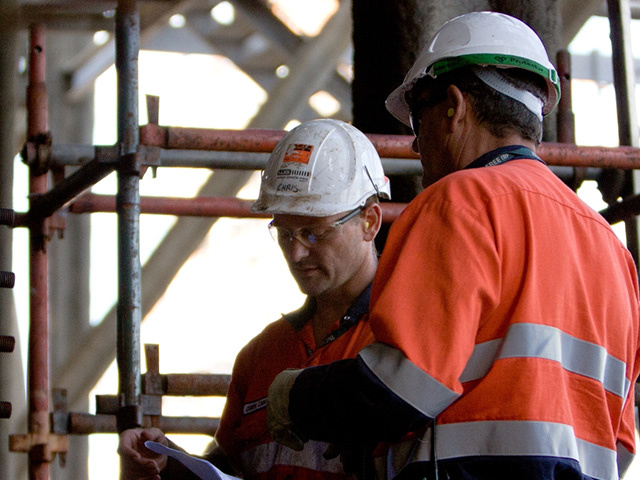
The workforce, unions and industry must resolve the looming strike dispute of the sake of the industry’s future, Wood Group’s leader today said.
Speaking exclusively to Energy Voice, David Stewart implored his staff to “play their part and be open and fair and reasonable” in discussions or risk impacting the UK’s oil and gas supply chain.
The chief executive of Wood Group’s eastern region business said his “door was open” for more talks in a bid to avert strike action.
The company chief said between 250 and 300 of its workforce could strike across eight of Shell’s North Sea assets.
It has not yet been made clear when the strike will begin as Wood Group engages with its workforce once again in the coming days.
However, the company leader warned there still a wide disconnect regarding pay.
Stewart said:”We still seem to be quite far apart, in terms of, is it 30% cuts or what we believe to be more around the average. I’d like to put some context around that because what I can say in terms of the facts is all of our staff on the Shell assets are paid at a minimum of the OCA partnership agreement.
“We have a large number of our staff in effect paid up to 50% above that. That’s our floor position and that would indicate if we were making 30% swingeing cuts we would have a number of staff on these assets somewhere between 30% and 45% above the industry average, that would be good for no one.”
The company leader said the financial pressure wasn’t limited to the offshore arena.
“I would categorise the feedback we get from the workforce in a couple of areas. Clearly there’s a sense of unrest because we are making cuts,” he said.
“There is an expectation I think from the workforce, in the wider context, that we’re making cuts just associated with the offshore workforce when in actual fact over the last two years we have made significant cuts to onshore contractors.
“We led that in 2014 with 10% cuts and over the period we’ve cut our contract workforce salaries by 30%. We’ve also analysed all our onshore managers, including management and we’ve introduced a pay freeze over the last two years, so there is a wider context.
‘We’ve released probably around 2,000 people from our UK workforce so this is not just an offshore thing and we really need to get the offshore teams to understand the role they play in cost reduction.
“The other element of feedback I think that is quite general is a lot of our staff want to know what it means to them specifically and over the coming weeks we will explain that in some detail. It has been difficult to do that because we couldn’t do that during the dispute resolution period.
“Now that has passed we will engage with our workforce because a lot of our guys have been saying ‘Ok, we understand the need for cuts, what does it mean to me?’ so we’d like to tell them that.
Wood Group is thought to have around 530 people on Shell’s assets.
The service firm boss a strike’s financial impact for Wood Group was still a “little bit unknown”, however, he said the “bigger issue” was the impact on the North Sea oil and gas industry in a more general sense.
He said: “What we would expect is, in general when people are on strike, they wouldn’t get paid and we wouldn’t bill the client – that is not the big issue here. The bigger issue is if the strike takes hold and it expands then we could impact the UK’s oil and gas supply chain and security of energy supply and that’s the biggest fear for everyone and that is not in the interest of anyone at this moment in time.”
Instead, Stewart said he hoped the workforce, unions and company would get around the negotiating table and “see how we could resolve this in a fair and open and transparent way”.
“Times are pretty challenging in the North Sea, so we’d really like to resolve this in an amicable way,” he said.
“Our door is open for future talks. I would really like to get round the table again and see how we could resolve this in a fair and open and transparent way. As I said, I really need to be clear on this, why it is that we’ve engaged with the unions over 11 times and we have made many concessions to salaries and to broader terms and conditions, allowances and life insurance. I’m still concerned the headline is 30% swinging cuts when clearly we have moved some way and I would like to get closer on that particular argument and I feel as though we can do that with further dialogue.”
He made a plea to staff to avoid taking strike action and said the current decline in oil price had been the “hardest, longest, deepest and most sustained” during his career in the industry.
Stewart added: “I guess the message to my workforce would be one of sustainability in jobs and I would ask my workforce to play their part in sustaining jobs and maximising economic recovery for the UK basin so we can preserve jobs for the future. I’m at the tail-end of my career. I’ve had a fantastic career in oil and gas. I want my children and my workers’ children to have a future in this sector so I would implore my staff to play their part and be open and fair and reasonable.”
